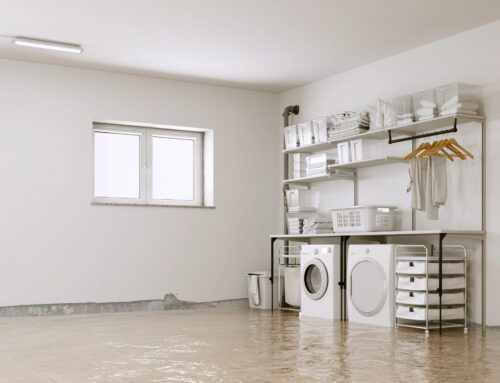So here you are; ready to start renovations on your existing home. Maybe you’ve decided your old ensuite needs a sweet upgrade. Perhaps you want to deck out your backyard with a new patio and outdoor kitchen. Or maybe the kitchen inside your house is just a little too small to host holiday dinners for the extended family. Whatever your reason, renovations can not only add value to your home, they enhance your enjoyment of it as well.
While popular home renovation shows are a great place to find inspiration and ideas, they aren’t always clear or upfront about the planning, work, and costs involved in the projects they feature. Planning a renovation knowing when, why, and how you want to make changes ensures the process is exciting and a point of pride, not a heartache.
Tip #1: Begin with a budget
Without a doubt, this is the most obvious — and important — part of your renovation plans. It’s vital that you balance what you want to be done in your home with what you can reasonably afford to do. As we said earlier, home renovation programs are a really great source of ideas, but it’s best if you do your homework and decide whether your plans are something you can reasonably undertake, or if your vision exceeds your budget.
It’s always a good idea to start with written estimates from reputable local contractors; provide them with detailed descriptions (and even inspirational photos) of the work you want to be done, the materials you’d like to use, and the start and completion date you have in mind. Their estimates should cover these points, giving you an itemized cost breakdown as well as the total estimated price. Armed with a clearer picture of costs compared to your available budget, you’ll easily decide on the scope of work you can afford.
Tip #2: Understand what you can and can’t do yourself
Are you thinking of painting a few walls, or knocking them down to expand your living space? Are you refinishing floors, or adding a second floor to your house? Once you’ve decided on a budget and know what you want to achieve, think about your renovation experience and what you truly feel is realistic given your available time and skill level. You might think you can save money by doing it yourself, but it may cost you money to have a professional come in and redo the work if you’re not careful.
Tip #3: Get to know your contractors
If you hire a professional renovator to handle your project, you want to know they’re the right team for the job. Word-of-mouth recommendations can be helpful, but you’ll want to consider looking into the certification, insurance, history, and reputation of your chosen contractor. Any customer-renovator relationship is a partnership, and being able to communicate efficiently and respectfully with one another is key. Interviews and face-to-face meetings can go a long way to helping you choose the right people.
Did you know? ANHWP has qualified Renovator Members who are among the elite in Alberta. Ask about Renovation Warranty today.
Tip #4: Spend your money wisely
Part of managing your budget is identifying any big-ticket items in your plans. Maybe you want marble countertops in your new kitchen and luxurious wide plank hardwood in the living room. Both options will look great, but having both may stretch your budget too far, meaning you may have to consider a less expensive option that fits your style, and your bank account. Decide which features and materials you’re willing to spend more on early, so you don’t have tough decisions or surprises later on in the process.
Tip #5: Pay attention to the details
It’s important that you make decisions early in the process; from the kitchen backsplash tile to the colour to the height of the baseboards in the hall, you should have a clear picture of everything going into the renovation. You’ll have plenty of decisions to make as the work proceeds, so the sooner you have everything planned, the more relaxed the process will be.
Tip #6: Be aware of your home’s current condition
It’s important to have a good understanding of the current state of your home since an existing issue can become a real headache if it’s going to affect the renovation process. For instance, you may be thinking of adding electrical outlets to your new living room, but if your existing electrical wiring is out of date or overworked, you may need to invest in some additional work.
Tip #7: Be prepared for disruptions
It’s stressful enough to renovate a home; it can be equally demanding to live in that home while the renovations are taking place! Dust, noise, paint fumes, plastic sheets, and scaffolding can make a mess, but they’re an unavoidable part of the process. Your home isn’t going to be spotless, and you’re going to have to accept it. If you think the disruption will be too much for your family, consider renting another place to live until the bulk of the work is finished and your home feels livable again.
Tip #8: Perfect plans don’t always go perfectly, but it will be worth the effort in the end
Every single home renovation sees its fair share of unexpected problems or hiccups. Every. Single. One.
It’s natural to want everything to go off without a hitch, but it’s unlikely given how many people, products, and variables are involved. Just try to remember this; even though you might fall behind schedule a little, or when some materials haven’t arrived on time, you’ll solve the problem, get on with the work, and eventually, have a newly renovated home to enjoy for years to come.
You’ve got this! Enjoy the adventure!












I’d first like to mention that I’ve been apart of the ANHWP for just over a year now and the service has been great, this program is awesome so thank you for all the support that is offered for new home owners.
Now secondly, great article! My drywall company has helped a lot of home owners through renovations, and all too often the steps mentioned in this article are not considered by the home owner prior to starting their reno. Following the 8 simple tips you’ve listed in this post could prevent homeowners from a huge headache! Thanks for sharing this, cheers.
Thanks Rob!
Nice article! Keep up the good work and keep writing.
Nice blog! I really like the article and very helpful for me. Thanks for sharing.
Thanks Harvey!
You are absolutely correct and thanks for giving information about tips for planning your home renovation . I loved your blog and thanks for publishing this!! I am really happy to come across this exceptionally well written content. Thanks for sharing and look for more in future!!